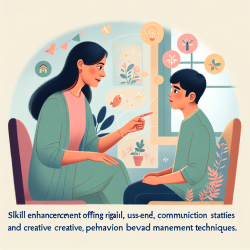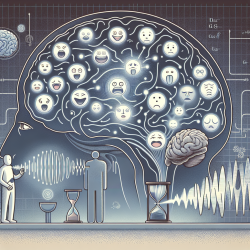Introduction
In the dynamic field of speech-language pathology, understanding how individuals navigate life changes can offer valuable insights for practitioners. The research article "It was all planned … now what? Claiming agency in later life in reforming China" by Jiayin Liang and Baozhen Luo provides a fascinating exploration of how Chinese retirees claim agency amidst dramatic social changes. This blog will delve into the study's findings and discuss how practitioners can apply these insights to improve therapy outcomes for children.
Understanding Agency in Later Life
The study examines the lives of 20 Chinese urban retirees who lived through the Mao era and the subsequent economic reforms. Using a grounded theory approach, the researchers identified three key themes:
- Reminiscence as a Mechanism of Meaning-Making: Retirees use reminiscence to make sense of their past and present, enhancing their coherence of meaning in life.
- Discovery and Exercise of Agency: Despite a structured earlier life, retirees discover and exercise agency through new activities and technologies.
- Varying Pathways to Constructing Retirement: Retirees navigate their later life through diverse pathways, such as lifelong learning and volunteering.
Implications for Practitioners
Understanding how agency is claimed in later life can inform therapeutic practices for children. Here are some actionable insights:
- Encourage Reminiscence: Just as retirees use reminiscence to construct meaning, encouraging children to reflect on their experiences can foster self-awareness and resilience.
- Promote Agency: Help children discover and exercise their agency by providing choices and encouraging decision-making in therapy sessions.
- Support Diverse Pathways: Recognize that each child may have a unique pathway to success. Tailor therapy to accommodate diverse interests and strengths.
Encouraging Further Research
The study highlights the importance of considering historical and social contexts in understanding agency. Practitioners are encouraged to conduct further research on how these factors influence children's development and therapy outcomes.
Conclusion
By applying the insights from this study, practitioners can enhance their therapeutic approaches and create better outcomes for children. To read the original research paper, please follow this link: It was all planned … now what? Claiming agency in later life in reforming China.










